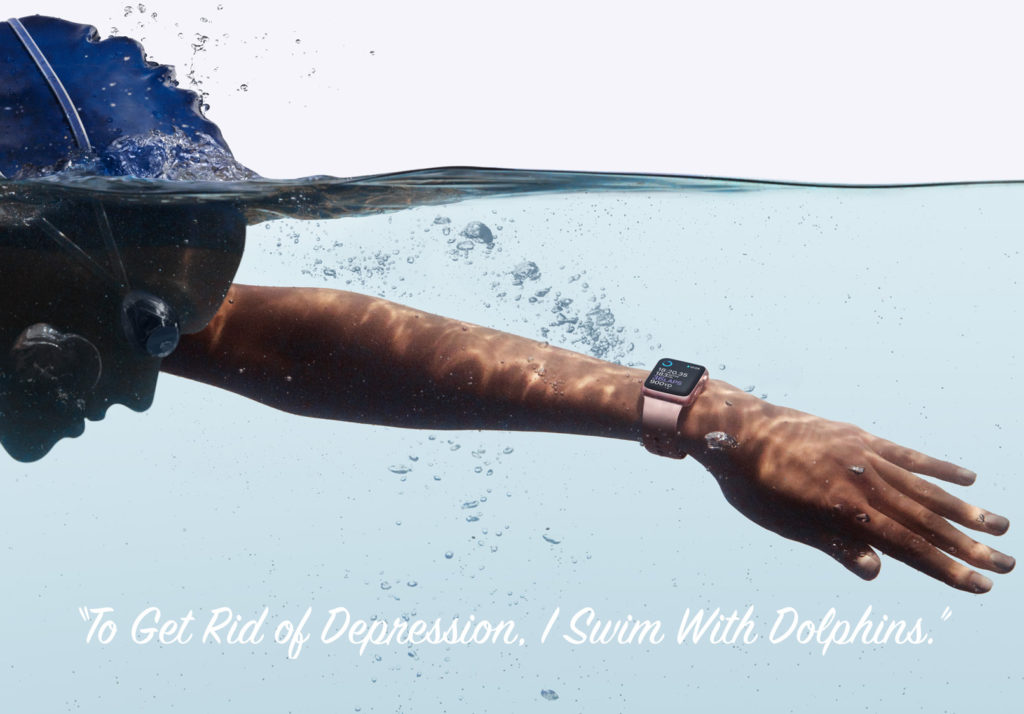Apple Watch Joins Fight Against Depression

Wearable technologies have only barely begun to scratch the surface of their potential to help people stay healthy and manage difficult conditions.
One great example to help illustrate this point is a new UK study trialling an Apple Watch app as a tool with which to monitor people enduring major depressive disorder (MDD).
350 Million
You may get the occasional reprehensible and reactionary politician who pretend they do not understand the significance of such conditions (such people only pretend they do not understand these problems in order to avoid ever feeling any sense of social responsibility), but these invisible disabilities are incredibly serious to sufferers.
Over 350 million people worldwide suffer from depression, which means that while you cannot see it, depression is one of the leading cause of disability worldwide.
The illness can cause cognitive problems, and these are what the Apple Watch study is trying to assess.
The app was designed by Cambridge Cognition’s wearables division, Cognition K, which is working with Takeda Pharma on the study.
Engagement and Analysis
“By combining wearable technology with world leading neuroscience, we’ve created an app that collects real time passive and active high-frequency mental health data,” said Jenny Barnett, PhD, Cognition Kit.
“Being able to access data regularly from daily life can help clinical decision making. Healthcare professionals can obtain patient data and increase patient engagement in their treatment.”
The study will involve 30 participants, aged 18-65 with a clinical diagnosis of mild to moderate depression who have been prescribed an antidepressant for Major Depressive Disorder.
They will wear an Apple Watch running the app to collect physical activity data. The app will also remind patients to take cognitive and mood assessments three times daily. The study is just one such research project that is being backed by the giant pharma firm, Takeda.
“This collaboration is part of our strategy to embrace new technology to better understand the patient experience and assist healthcare professionals in creating improved patient care pathways,” Nicole Mowad-Nassar, Takeda USA’s vice president of External Partnerships said in a statement.
Understanding States
This is by no means the only time we’ve seen Apple’s products being used in support of mental health diagnosis, management, and care. The Mood Challenge has supported research in PTSD and how mood and environment changes care givers.
The physical information picked up by these devices can help users understand how habits influence mood.
“For example, depressed patients stay in bed. Clever researchers can demonstrate changes in activity using these tools,” Dr. Kevin Johnson, Cornelius Vanderbilt professor told the Daily Dot.
“Anxious patients move more erratically and may have altered sleep patterns. Clever developers can notify the patient about the change, and present the user with a survey using ResearchKit that helps understand the why of what the data are showing.”
Autonomy Is Power
Doctors also think that by better understanding of the links between the kinds of data gathered by Apple Watch, they can gain a better insight into patient condition.
They think this will enable them to predict “behavior or when mood is going to change, or when PTSD symptoms are going to kick in.”
That’s very useful information both for support services and for patients themselves. PTSD in particular can be an utterly debilitating condition that can and does destroy lives. Any research that may give sufferers better tools with which to manage their condition should have a direct positive impact on their lives. That matters.
There are numerous ResearchKit studies taking place in this sector. And while (at least in the UK) many of us recognise that these are mainly financed by firms hoping to make huge profits from selling us these technologies, there is still some hope that some of the benefits will feed into the public domain.
Apps You Can Try Today
Here are some good apps that may help you control your own state.
- Pacifica: Track your mood and feelings over time.
- Headspace: A little app that helps teach mindfulness.
- Breathe: Apple’s built-in meditation app inside Apple Watch.
- Sleep Well: One of the better self-hypnosis apps, Sleep Well will help you get to sleep almost every time, the developer offers a range of highly effective apps of this nature. (I use this one myself).
- Moods: A mood tracking app.





I track my depression using the Apple stock app. The fluctuations in AAPL track with my mood!
(Not making fun of depression. I’ve been dealing with it for over 50 years.)
I do think you’re wrong in stating that people “pretend” to not understand. Over the years I’ve seen that – even those who give lip service – even importantly -don’t really “understand” depression – or other mental disabilities – or, really – the problems in coping with all kinds of disability. Mobility, blindness, deafness etc.
Thanks for putting these tidbits up.
I accept your point — it is very hard to truly comprehend depression, and what it does — it does so much more than just make people sad.
The reference I was making there was to a UK government MP who seems to think that depression is a self indulgence, which it isn’t — it was intended to reject that point of view, and not to make any pretence of knowing “the truth” for other people enduring their own unique experience of disability in any form.
Thank you for writing!!!